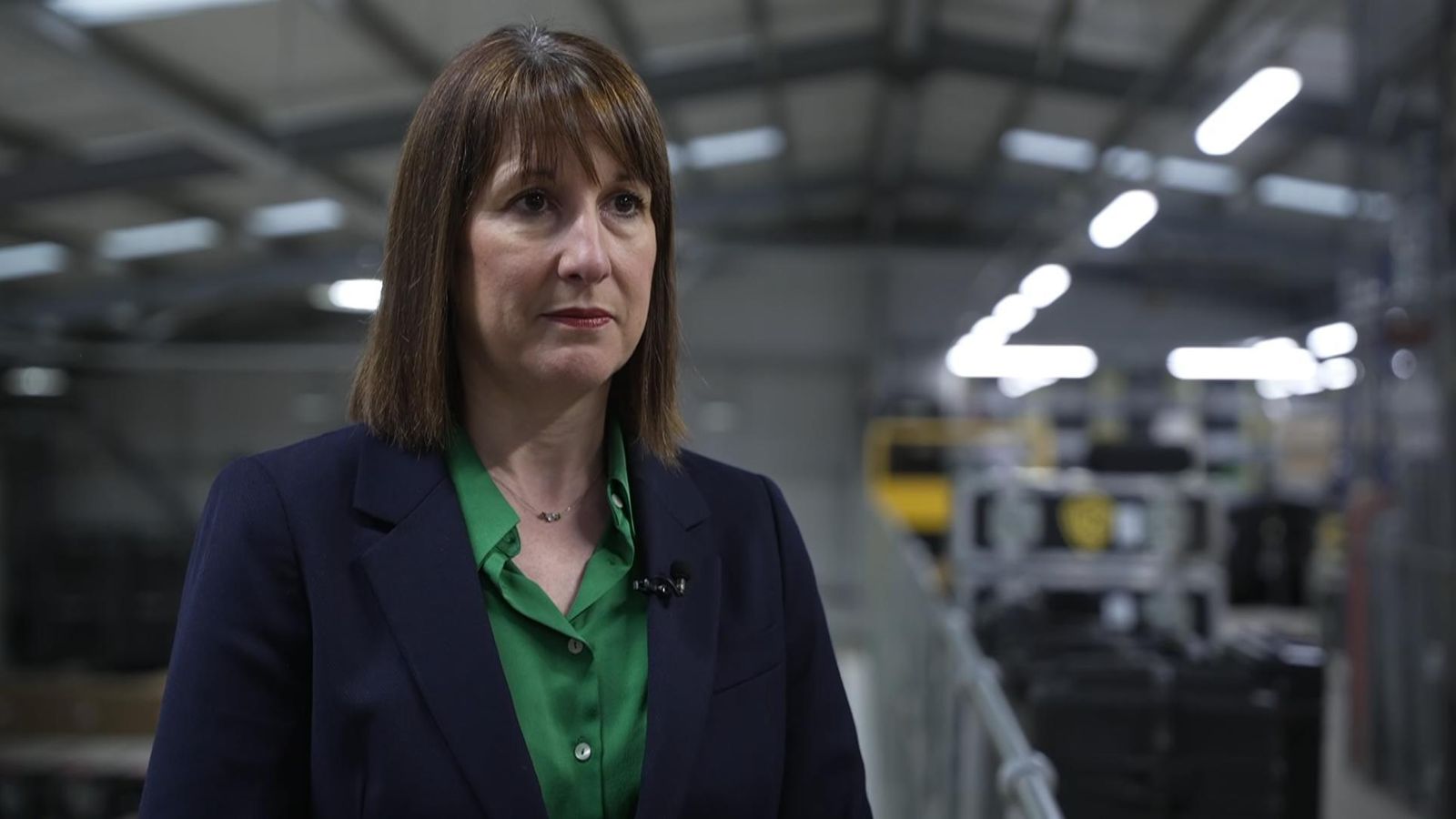Politics
More pressure to raise taxes or cut spending – despite greatest budget surplus since records began

A Delicate Balance: The UK’s Fiscal Challenges
Pressure Mounts on the Chancellor
Chancellor Rachel Reeves is facing increasing pressure to address the UK’s fiscal challenges as new official figures reveal that government borrowing is higher than expected, while tax revenue has fallen short of projections. Despite the Office for National Statistics (ONS) reporting the largest budget surplus since records began in 1993, amounting to £15.4 billion, the underlying numbers paint a more complex picture. Borrowing was £11.6 billion higher than the previous year, marking the fourth-highest level on record. This has sparked concerns about the sustainability of the current fiscal path and the potential need for difficult decisions, such as tax increases or spending cuts.
The January data release showed that for the year as a whole, borrowing exceeded the Office for Budget Responsibility’s (OBR) forecast of £105.4 billion, reaching £118.2 billion. January is typically a significant month for tax collection due to self-assessment returns, but even then, both tax revenue and the surplus fell below economists’ expectations. This has raised questions about whether the government can maintain its fiscal rules, particularly the goals of reducing debt and balancing the budget by 2030.
The Rising Cost of Borrowing
One of the most pressing issues highlighted by the data is the surge in government borrowing costs. Long-term borrowing costs soared in January, with interest rates on state debt reaching levels not seen in decades. This increase was driven by higher inflation and expectations that interest rates will remain elevated for longer than previously anticipated. This spike has raised fears that Chancellor Reeves may be forced to abandon her fiscal rules or find ways to create additional "headroom" to accommodate the rising costs.
The higher borrowing costs have already begun to erode the chancellor’s fiscal headroom—the money she has available to spend while still adhering to her rules. Experts warn that this situation could worsen, with Pantheon Macro’s senior UK economist, Elliott Jordan-Doak, cautioning, "It will only get worse from here." The firm predicts that the chancellor’s headroom has already been wiped out and that spending cuts and tax rises are likely to follow. Another economics research firm, Capital, echoed this sentiment, stating that Ms. Reeves will need to raise taxes and/or cut spending in the fiscal update scheduled for 26 March to meet her fiscal rules.
The Challenge of Tax Revenue and Spending
The data also underscored the challenges the government faces in managing tax revenue and public spending. While the budget surplus in January was significant, it was driven by factors that may not be sustainable in the long term. The uncertainty surrounding tax revenue and the rising cost of borrowing create a difficult environment for planning future spending. This has led to calls for the government to reassess its priorities and consider measures to stabilize the public finances.
The situation is further complicated by the fact that January is a critical month for tax collection, yet the revenue fell short of expectations. This raises questions about the overall health of the economy and the government’s ability to meet its fiscal targets. With borrowing already exceeding forecasts, the pressure on the chancellor to act is intensifying.
Expert Warnings and Rising Concerns
Economists and experts are sounding the alarm about the potential consequences of inaction. Pantheon Macro and Capital are among the firms warning that the chancellor may have no choice but to implement tax increases and spending cuts. These measures could have far-reaching implications for households and businesses, particularly if they are implemented during a period of economic uncertainty.
The warnings highlight the delicate balance the government must strike between maintaining fiscal discipline and supporting the economy. With inflation remaining high and interest rates expected to stay elevated, the cost of borrowing will continue to rise, further straining the public finances. This creates a challenging environment for the chancellor as she prepares for the fiscal update in March.
A Commitment to Stability
Despite the mounting pressure, the government has reaffirmed its commitment to economic stability and meeting its fiscal rules. Darren Jones, Ms. Reeves’s deputy, emphasized that the government is dedicated to delivering on its promises, stating, "This government is committed to delivering economic stability and meeting our non-negotiable fiscal rules. We will never play fast and loose with the public finances." Mr. Jones added that the government is scrutinizing every pound spent to ensure that it aligns with the country’s priorities.
The government’s focus on line-by-line reviews of spending reflects its determination to prioritize efficiency and effectiveness in public expenditures. However, the scale of the fiscal challenge suggests that this alone may not be sufficient to address the underlying issues. The coming months will be critical as the chancellor navigates these complexities and works to maintain the trust of both the markets and the public.
Looking Ahead: The Road to Fiscal Sustainability
The fiscal update on 26 March will be a pivotal moment for Chancellor Reeves and her team. The decisions made then will have significant implications for the direction of the economy and the government’s ability to meet its fiscal rules. While the government remains committed to stability, the rising cost of borrowing and the shortfall in tax revenue present formidable obstacles.
As the UK navigates this uncertain economic landscape, the balance between fiscal discipline and supporting growth will be crucial. The government must find a way to address the immediate challenges while laying the foundation for long-term fiscal sustainability. The stakes are high, and the choices made now will shape the economic future of the country for years to come.


















